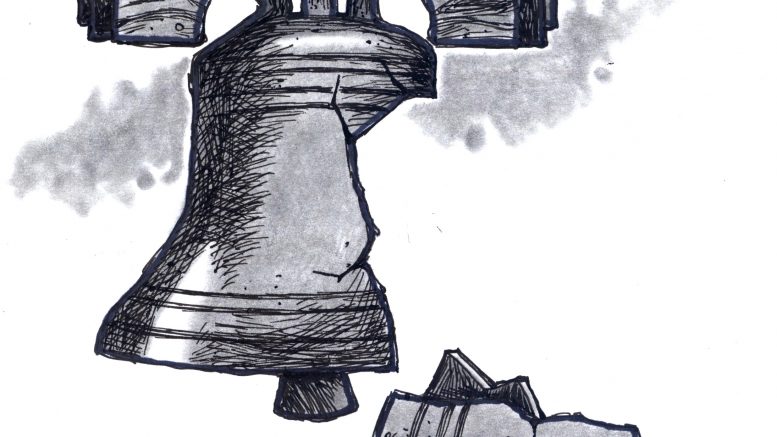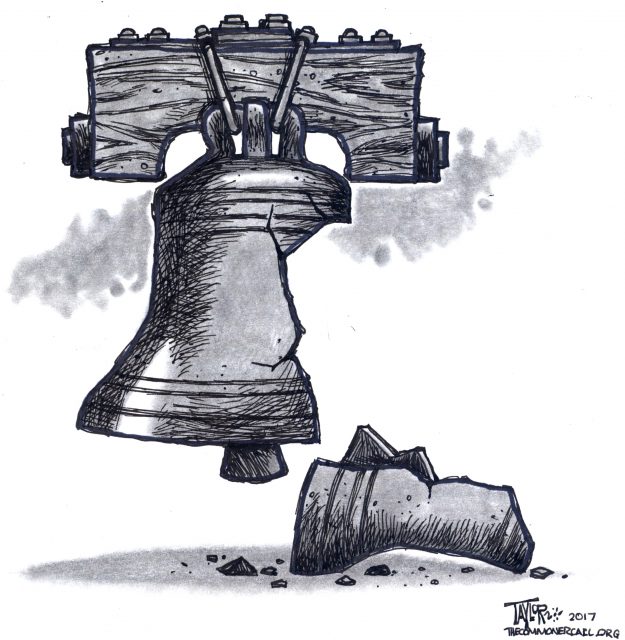Real freedom must be understood as freedom from both public and private coercion – a point that has been utterly forgotten by so-called libertarians, conservatives and even most neoliberals.
By Tim Wu
The Guardian (11/19/18)
Over the last several decades, many in the west have come to accept a remarkably narrow concept of what the economy and a democracy are for. The economy exists to make us rich, or at least pay the bills. It’s thought to be working when the stock market and the GDP rise. Democracy is voting for someone who is “on your side”. The two are linked when you vote for someone who promises to make you rich, or at least cut your taxes.
At the risk of stating what has become obvious in recent years, this materialistic view of the economy and democracy is at best thin and at worst dangerous. Prolonged economic dissatisfaction and our thin conception of democracy have left behind a spiritual hole that has driven voters across the United States, Europe and South America into the arms of angry populists and nationalists who offer a new spiritualism based on the nation.
But there’s another, nearly lost, democratic tradition, in which the goals of a democracy and a worthy civilization are irreducibly linked to the healthy development of its citizens along social, intellectual, and spiritual dimensions. In this older conception, a great democracy is one that serves as a cauldron for the building of good character and the pursuit of a worthwhile life – one that includes but also goes beyond mere material security.
When private power is concentrated, corporate citizens can begin to crowd out humans with their demands. A certain inhumanity arises, and we lose sight of the idea that human flourishing ought be the goal.
This version of democracy puts the focus not on the ballot box or the ticker tape, but on the quality of citizens’ lives as actually lived. In doing so, it recognizes that healthy personal growth doesn’t just happen: it requires both liberties and securities in which human flourishing becomes possible.
“the right to live, and not merely to exist”
On this view, all citizens should have the security to transcend a brute struggle to survive and feel safe, and the freedom to seek something more with their lives. As the American jurist Louis Brandeis once put it, “the ‘right to life’ guaranteed by our Constitution” should be understood as “the right to live, and not merely to exist”.
Brandeis’s view has radical implications for what a country and its economy should look like. In particular, it demands that we acknowledge, limit and balance the dangers of both government oppression and private coercion in our lives. That means protection against government censorship and oppression, to be sure. But it also means freedom from industrial domination, exploitation, or so much economic insecurity that one constantly fears unemployment or poverty. As Brandeis wrote, no one is really free “if dependent industrially on the arbitrary will of another”. …
(Commoner Call illustration by Mark L. Taylor, 2017. Open source and free for non-derivative use with link toe www.thecommonercall.org )


